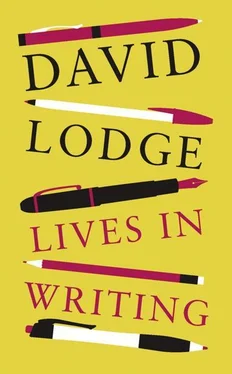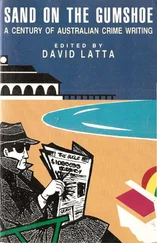Amis enjoyed at least the first four items on this list when he returned to Oxford to complete his degree course. Larkin, who was medically exempted from military service, had left and become an academic librarian, first in Belfast and then in Leicester. The two men would never again live in the same place, but this had the effect of provoking a rich correspondence between them, and a visit by Amis to Leicester University which he claimed gave him the idea for Lucky Jim. In Oxford he met an attractive young art student called Hilary Bardwell and reported to Larkin his successful campaign to get her to ‘yield’, and its sequel. In late 1947, after he had obtained a first-class degree and commenced a B.Litt. course, Hilary became pregnant. Amis arranged for her to have an abortion — a criminal, sordid, and expensive business in those days — but cancelled it at the last moment out of a creditable concern for Hilly’s health, and they married. Amis retold the story in a late novel, You Can’t Do Both (1994). Their son was born in August 1948, and named Philip, after Larkin. They were poor, but on the whole happy, Amis’s main complaint about marriage being the new relatives he acquired, especially his father-in-law whom he described to Larkin as ‘an extraordinary old man like a music-loving lavatory attendant’, and vowed to pillory in a book one day. Mr Bardwell was the model for Professor Welch in Lucky Jim , but he failed, or perhaps refused, to recognise himself in the character.
Lucky Jim , however, was still in the future. At this time Amis was working on a novel called ‘The Legacy’. Interestingly the main character was called ‘Kingsley Amis’ (a postmodernist trick which Amis never employed again, though his son Martin would use it in Money ) and is described by Leader as Amis’s ‘first hero as shit’. Amis attributed his failure to find a publisher for the novel to its experimental character, and this may have motivated him to adopt a more reader-friendly style in his next fictional project. The B.Litt. course entailed writing a substantial dissertation, and the topic Amis proposed, later drastically reduced in scope, was significant: a study of the ‘Decline of the Audience for Poetry 1850 to the Present Day’, aiming to show that when poets neglected a large public readership their poetry suffered in quality. A view of writing as communication, rather than self-expression or the exploration of form, would become a fundamental principle of the Movement.
In 1949, without having finished his thesis, but with a second child (Martin) on the way, Amis applied for teaching posts at several universities and finally obtained one at University College Swansea, part of the federal University of Wales. Its English Department was not academically distinguished: no member of staff had published anything in the previous year, and with one exception none of them would ever publish a book. In this company Amis, with some published poetry and literary journalism to his name, was almost a star, and he kept his job even after his B.Litt. thesis was rejected by the two examiners, one of whom was Lord David Cecil. Amis was popular with students, though not always with his senior academic colleagues. It was in Swansea that he became a dedicated philanderer, and Hilly herself had occasional flings and one serious affair. It is likely that her third child, Sally, born in 1954, was not Amis’s, though he never said or showed that this was the case. They became the centre of a raffish social scene, generous and permissive party hosts, especially after the sensational success of Lucky Jim in 1954.
That novel went through several drafts over several years, guided by extensive comments from Philip Larkin, especially when Amis was rewriting the penultimate version, entitled ‘Dixon and Christine’, which was submitted to and rejected by the publisher Michael Joseph. Leader gives a detailed and fascinating account of this revision process, during which Amis constantly consulted Larkin, who assisted him to a remarkable extent, suggesting significant changes in emphasis and structure which Amis invariably adopted. ‘The help Larkin gave Amis with Lucky Jim was crucial to its success, as Amis fulsomely acknowledged, both in public and private,’ says Leader. Larkin could not, however, conceal from other friends some jealousy of the literary fame Lucky Jim and its successors brought to Amis, and developed a grievance against him on this score. Leader observes: ‘In later years Larkin would sometimes grumble about not being properly credited for the amount of help he gave Amis with Lucky Jim . He once told Maeve Brennan. . that Amis had “stolen” Lucky Jim from him. He cannot, though. . have meant this seriously.’ The success of the novel did, however, significantly affect their friendship, as did Amis’s reports of his ever-accumulating sexual conquests, which Larkin received with a mixture of astonishment, disapproval and envy that he put into a poem, ‘Letter to a Friend About Girls’, which he wrote in 1959 and revised at intervals up till 1970. He was never completely happy with it, and by his own wish it was not published in his lifetime. It begins:
After comparing lives with you for years
I see how I’ve been losing: all the while
I’ve met a different gauge of girl from yours.
Grant that, and all the rest makes sense as well.
And it ends:
It’s strange we never meet each other’s sort:
There should be equal chances, I’d’ve thought.
Must finish now. One day perhaps I’ll know
What makes you be so lucky in your ratio.
One of those ‘more things’, could it be? Horatio .
The last line, which identifies the poem as a letter from Horatio to Hamlet, alluding to a famous speech in Shakespeare’s play (‘There are more things in heaven and earth, Horatio. .’) seems an obvious afterthought designed to disguise its biographical and autobiographical sources. 2
Amis’s philandering, and Hilly’s less promiscuous infidelities, seem to have reached a kind of peak during the latter part of a year spent in America at Princeton University in 1958–9, where he gave the Gauss Seminars at the invitation of R.P. Blackmur (choosing science fiction as his topic, on the shrewd assumption that his audience would not know much about it) and taught creative writing. Leader describes it as ‘the wildest year of their marriage’. Amis and Hilly had simultaneous affairs with their neighbours the McAndrews, and according to one observer, Betty Fussell, they ‘inspired a whole year of husband-and-wife-swapping’ at Princeton, though Kingsley was the main instigator, propositioning every attractive woman he met regardless of her marital status. ‘It was compulsive,’ commented another Princeton friend. Amis’s own explanation, or excuse, was that for him sex was a way of exorcising the fear of death, and this theme can be discerned in his fourth novel, Take a Girl Like You (1960), whose hero muses in characteristic Amis style:
All that type of stuff, dying and so on, was a long way off, not such a long way off as it had once been, admitted, and no doubt the time when it wouldn’t be such a long way off as all that wasn’t such a long way off as all that, but still. Still what?
Take a Girl Like You describes the long campaign of the cynical and selfish Patrick Standish to overcome the old-fashioned moral principles of the heroine, Jenny Bunn, and take her virginity. It was a carefully crafted novel of acute social observation, a kind of elegy for an era of sexual decorum and restraint that would soon be superseded by the permissive society, and that Amis had already left far behind in private life.
Swansea must have seemed even more of an academic backwater on their return from Princeton, and Amis seriously considered settling in America, but the offer of a fellowship at Peterhouse, Cambridge kept him in England. He was, however, never really comfortable in this post. It was a college appointment in which the University’s English Faculty had no say, and Amis was cold-shouldered by some of the latter’s members. F.R. Leavis famously remarked that Peterhouse had hired ‘a pornographer’ (revealing complete ignorance of Amis’s novels or pornography, or both, for Amis’s fictional treatment of sexual intercourse is notably reticent). Peterhouse was hospitable but not much interested in literature as a subject. (It was symptomatic that an economic historian among the Fellows couldn’t see what was funny about the title of Dixon’s article in Lucky Jim .) Also Amis’s tutoring duties, which he carried out conscientiously, were quite taxing. In 1962 he met Robert Graves, the visiting Professor of Poetry at Oxford, whose work he had always admired, and this led to a visit to Graves’s home in Deya, Majorca, that summer, which was so enjoyable that Amis decided to resign his fellowship in 1963 and spend a year with his family on the island. It was a surprising decision for a writer who had famously attacked the literary cult of ‘abroad’, in I Like It Here , and Leader plausibly speculates that Amis had reached some kind of dead end in his life from which he was desperate to escape, like the anti-hero of the novel on which he was then working, One Fat Englishman . I shall return to this interesting novel.
Читать дальше












